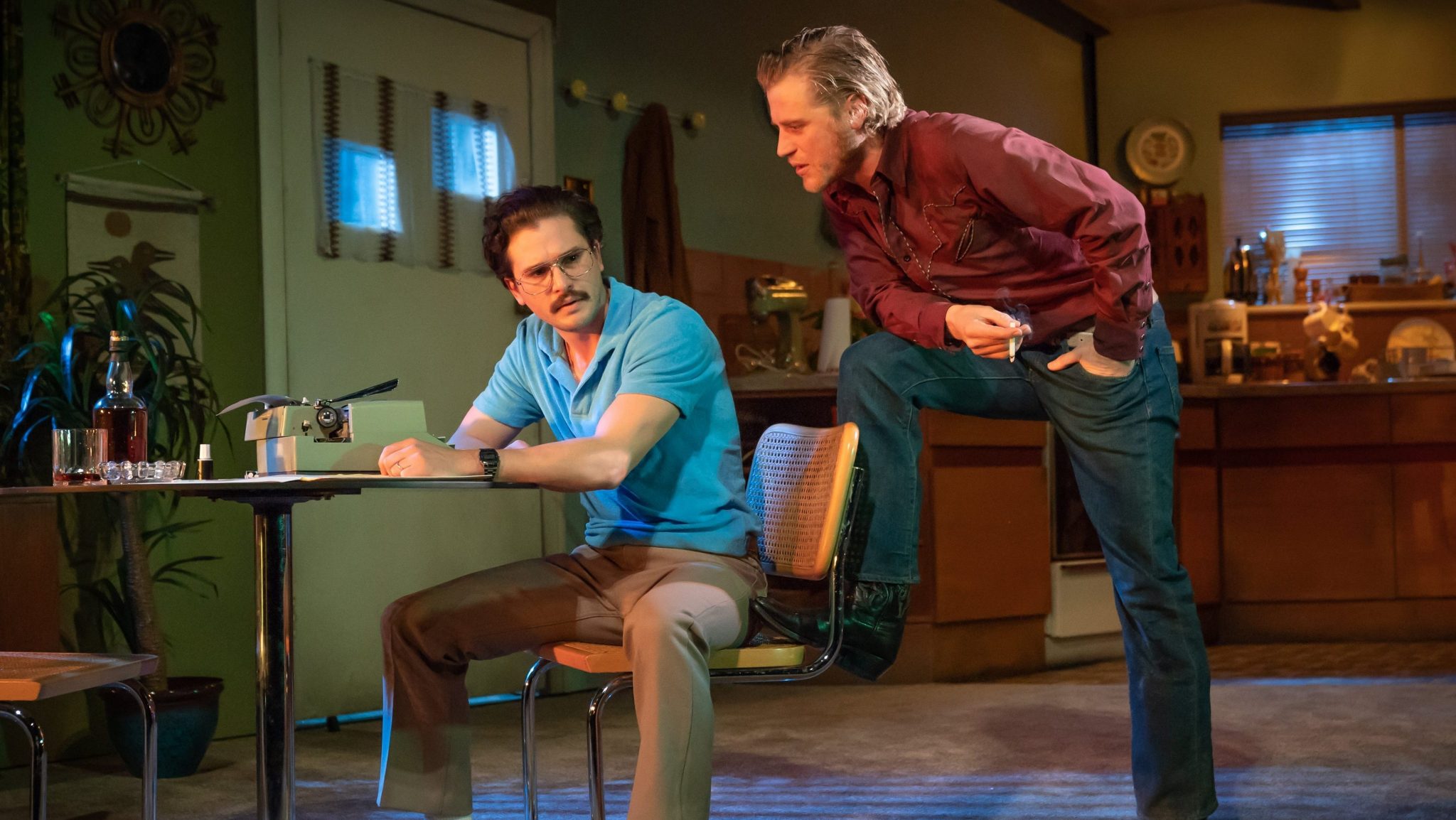Sam Shepard’s True West is a show that seems as relevant today as it did almost 30 years ago when it was first published. It explores the aspirations of real people, the American dream and the revelation that it is always just out of reach.
Kit Harington, playing clean-cut writer Austin, appears on the stage before the production begins. He sits at the table and writes a few words before wandering to the kitchen to get a glass of water. There is a sense that this is nothing out of the ordinary: this is the audience’s insight into the life of a normal, suburban man. Austin’s attempts to finish writing his screenplay are disrupted by older brother Lee, played by Johnny Flynn, complete with low sideburns and a short temper. The brothers appear to be opposites in every way, down to Austin’s proclamation that he “loves beginnings” whilst Lee is “partial to endings”. The two soon realise they are perhaps more similar than it initially appeared, with Lee longing for the stability that comes with a regular job, and Austin coveting Lee’s exciting lifestyle in the desert.
The staging is sublime – Harington lights a cigarette before plunging the stage into darkness and silence, accompanied only by candlelight. This is truly ‘sweet suburban silence’. Harington and Flynn do not rush: they savour the silences and lean into them, drawing the audience into indescribable tension. Any set alterations are performed in almost complete darkness, offset by funky ska-music. The set itself is interesting, with forced perception allowing for minimal set changes except to force the room deeper into disarray as the play progresses. This is the work of Jon Bausor, set director and costume designer, who creates an utterly convincing 80s-era setting.
Overall, act one is slow-moving, serving to establish the chalk-and-cheese personalities of Austin and Lee. This is possibly where the play falls down, as there seems to be no direction for the plot to move in. Flynn takes the limelight here as a slightly manic, drunken thief compared to Harington’s Austin who pales in comparison. By the end of the first act, however, we begin to see Austin’s slow descent into insanity, prompted by Lee’s overnight success. It is here that Harington shines as the frenzied writer desperate to escape his ordinary life and pushed to the edge by his own ambition. Some laughs are garnered, particularly in Harington’s scene in the second act accompanied by eight toasters and a whole lot of bread. The second act is certainly more entertaining than the first, with the action picking up and the brothers seeming to resent each other more by the minute.
True West was an enjoyable performance – the actors were polished and professional, featuring Donald Sage Mackay and Madeleine Potter as excellent supporting actors as a film producer and the brothers’ mother respectively. The first act is slow and drawn-out, though this only makes the second act more enjoyable in comparison. Harington and Flynn are compelling as typical American westerners who want what the other has, proving that the grass really may not be greener on the other side.



